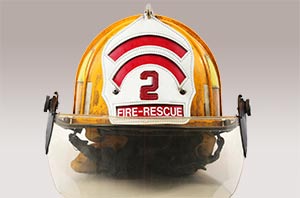
Here are some important factors to consider when choosing a generator:
- Which equipment is critical for the fulfillment of emergency duties?
- What size generator will be necessary to accommodate that equipment?
- Which fuel should be used as a source of power?
- Where should the generator be installed to ensure adequate ventilation and clearance from potential flooding?
Permanent generators are typically wired with a transfer switch that automatically isolates the circuits that were designated as being critical for emergency situations, and provides immediate power to those circuits. Telecommunications, a few electrical outlets, some lights, computers, fuel pumps and garage door motors are typically served by the unit. Prioritizing what to keep powered up is a necessary step in determining the electrical load needed. A licensed engineer can help determine the capacity and size of the generator you’ll require to stay up and running.
Most commercial generators run on diesel fuel and/or natural gas. There are pros and cons for each. Since many fire departments have on-site diesel fuel tanks for their trucks, these tanks could also be used to power the generator. On the other hand, the fuel supply could be interrupted during a storm, leaving you in a bad spot. One solution would be to install a separate diesel tank dedicated to the generator, but it would likely be subject to government regulations, including registration and regular inspection.
Natural gas-supplied generators are convenient and do not require additional registration for their fuel supply. However, relying solely on natural gas would put you at risk should the natural gas supply pumps lose power.
Because neither option is completely ideal, Walden recommends a bi-fuel generator if both diesel fuel and natural gas are available at your fire house. Having both types of fuel available will act as an insurance policy against power loss when failure is not an option.
With winter storms looming on the horizon, now is the time to explore your options for emergency power generation. Perhaps an emergency generator should be a priority to ensure uninterrupted service, both in your fire house and in your community. Call Walden today to find out more, and to get a complimentary site visit and estimate.
